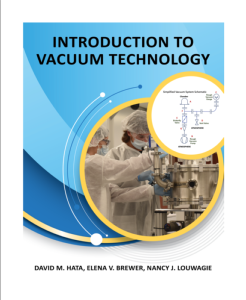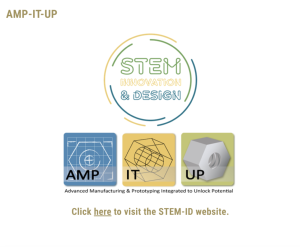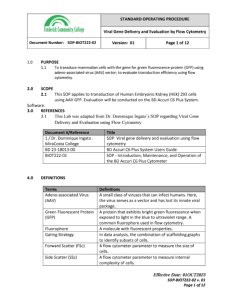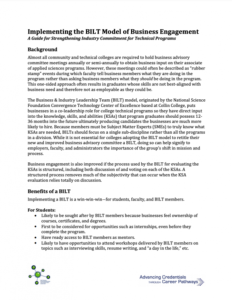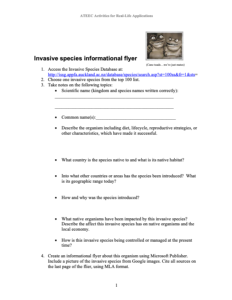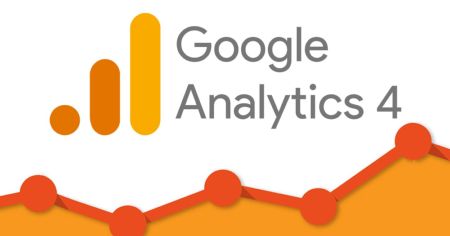ATE is Advanced Technological Education. With an emphasis on two-year colleges, the National Science Foundation's ATE program focuses on the education of technicians for the high-technology fields that drive our nation's economy.
Advanced Semiconductor Manufacturing Conference (ASMC)
Conference
May 13 Albany, NY
ASMC brings together manufacturers, equipment and materials suppliers, and academia to solve manufacturing challenges with innovative strategies and methodologies.
ASMC is the leading international technical conference for discussing solutions that improve the collective manufacturing expertise of the semiconductor industry. Solving the challenges presented by semiconductor manufacturing is a combined effort by device makers, equipment and materials suppliers, and academics. ASMC provides an unparalleled platform for semiconductor professionals to network and learn the latest in the practical application of advanced manufacturing strategies and methodologies. Technical presentations at ASMC highlight industry innovations with specific results, and select ASMC manuscripts are published in the ASMC Special Section of IEEE Transactions on Semiconductor Manufacturing.
(View More)
BioMADE Mentee Information Session
Webinar
May 14 Online
The goal of BioMADE’s mentorship program is to inspire and provide guidance to community college and university students in northern California interested in learning about bioindustrial manufacturing careers. The mentorship program welcomes learners with diverse levels of science knowledge, including undergraduates with limited science backgrounds, as well as recent graduates and those holding associate/bachelor’s degrees in both science and non-science disciplines. Attend this webinar to learn how you can get involved.
(View More)
BETO BRIDGES Professional Development Instructor Workshop
Workshop
May 15 Lemont, IL
This engaging workshop will introduce educators to national laboratory research in bioenergy. Participants will explore how the Bioenergy Research and Education Bridge (BRIDGES) Program, a case study-based bioenergy education curriculum, can be effectively incorporated into the classroom and help to educate students on this clean energy STEM pathway.
The case study-based bioenergy education curriculum is intended to be taught in diverse settings including community colleges, technical colleges, universities, and upper-level high school classrooms. Created by the U.S. Department of Energy (DOE) Bioenergy Technologies Office (BETO) in partnership with Argonne National Laboratory and Idaho National Laboratory, BRIDGES provides background and foundational materials for students and instructors with no prior bioenergy knowledge.
The agenda will include presentations by scientists, tours, discussions, and training on teaching the Bioenergy Research Education and Bridge (BRIDGES) Program case studies developed by DOE’s Bioenergy Technologies Office in partnership with Argonne National Laboratory and Idaho National Laboratory. Each BRIDGES case study toolkit includes guides for students and instructors, with a focus on careers in biofuels, plastics upcycling, sustainable aviation fuel, and more!
The workshop will take place at Argonne National Laboratory in Lemont, Illinois, and participation is by application only. Space is limited. College faculty from across the nation are invited, with priority going to applications from instructors from community colleges and technical colleges. Travel support is available for those located more than 50 miles from Argonne National Laboratory’s physical address.
(View More)
Summer of Nanopore Sequencing 2024 - Spelman College
Workshop
May 15 Atlanta, GA
Nanopore sequencing analyzes individual DNA molecules in real time, and is the “next big thing” in biology education, making real-time DNA sequencing accessible to bioscience teachers and faculty. The DNA Learning Center and Oxford Nanopore are adapting nanopore sequencing for use in education, and you can be among the first to test their integrated Oxford Nanopore MinION/DNA Subway system that can provide DNA sequencing and analysis any time, any place, by anyone, and at an affordable price. Workshop participants will each receive a $300 stipend.
(View More)
WWCode CONNECT 2024: Thrive in Tech
Conference
May 16 Online
Join technologists and industry experts from around the world for a one-day live virtual technology conference. Register for a full day of technical workshops, talks, and career networking sessions on the latest industry trends and opportunities to connect with other professionals to help you thrive in your career.
(View More)
BioMADE Mentee Information Session
Webinar
May 17 Online
The goal of BioMADE’s mentorship program is to inspire and provide guidance to community college and university students in northern California interested in learning about bioindustrial manufacturing careers. The mentorship program welcomes learners with diverse levels of science knowledge, including undergraduates with limited science backgrounds, as well as recent graduates and those holding associate/bachelor’s degrees in both science and non-science disciplines. Attend this webinar to learn how you can get involved.
(View More)
Certified Ethical Hacker (CEH)
Workshop
May 20 Online
This workshop is intended for community college faculty interested in becoming cybersecurity faculty or faculty wishing to expand their knowledge, earn an industry certification, and strengthen their ability to incorporate new cybersecurity content in their community college curriculum. This workshop is not intended for students or other non-faculty.
The Ethical Hacking workshop is an in-depth and comprehensive course that delves into the common tactics employed by hackers to breach systems. From SQL injection and spear phishing to buffer overflows, this workshop equips you with the knowledge and skills needed to defend against these attacks. By immersing you in the hacker mindset, you will gain a better understanding of how to anticipate and protect against potential threats.
(View More)
How to Produce a Livestreaming Event (that is Accessible, Green, and Open Source)
Webinar
May 21 Online
This webinar will introduce accessibility techniques and approaches to help livestream event producers plan and design their virtual, hybrid, or in-person events that get broadcasted.
This webinar will look at examples of different types of livestreams, basic equipment and software that's needed, and how to manage human-written live captions and sign language interpretation.
In addition to accessibility, this webinar will touch on low-carbon producing as well as using commons-based, open-source software for livestreaming.
(View More)
BioMADE Mentorship Program Information Session
Webinar
May 22 Online
Attend this webinar to learn about volunteer opportunities with BioMADE’s new mentorship program. The program welcomes volunteers from both BioMADE member and non-member organizations. Please feel free to share this information with your colleagues who may be interested. The goal of the mentorship program is to inspire and provide guidance to community college and university students interested in learning about bioindustrial manufacturing careers and help build a diverse future workforce. The program is seeking mentors and/or volunteers in northern California for career development activities for three cohorts of students in the 2024/2025 academic year. Attend this webinar to learn how you can get involved.
(View More)
Webinar: NSF ATE Proposal Budget and Budget Justification
Webinar
May 22 Online
This webinar covers all aspects of the budget and budget justification for NSF ATE proposals. Topics include: how to prepare a budget for your NSF ATE grant, what to include in your budget category, how to align the budget and project description, how to prepare a budget justification, and how to avoid common errors. Upon completion you will know how to build a budget and budget justification for a competitive grant proposal for NSF ATE.
(View More)
NISOD 2024 International Conference on Teaching and Leadership Excellence
Conference
May 25 Austin, TX
NISOD’s International Conference on Teaching and Leadership Excellence is the definitive gathering of community and technical college educators passionate about teaching and learning. Over the years, NISOD’s annual conference has provided faculty, administrators, and staff with the resources, ideas, and solutions that drive excellence in all areas of community and technical college campuses.
(View More)
2024 IEEE 74th Electronic Components and Technology Conference
Conference
May 28 Aurora, CO
The Electronic Components and Technology Conference (ECTC) is the premier international event that brings together the best in packaging, components and microelectronic systems science, technology and education in an environment of cooperation and technical exchange. ECTC is sponsored by the IEEE Electronics Packaging Society.
The technical program contains papers covering leading edge developments and technical innovations across the packaging spectrum. Topics include advanced packaging, modeling and simulation, Photonics, interconnections, materials and processing, applied reliability, assembly and manufacturing technology, components and RF, and emerging technologies.
(View More)
Summer of Nanopore Sequencing 2024 - Arecibo C3 STEM Center
Workshop
May 29 Arecibo, PR
Nanopore sequencing analyzes individual DNA molecules in real time, and is the “next big thing” in biology education, making real-time DNA sequencing accessible to bioscience teachers and faculty. The DNA Learning Center and Oxford Nanopore are adapting nanopore sequencing for use in education, and you can be among the first to test their integrated Oxford Nanopore MinION/DNA Subway system that can provide DNA sequencing and analysis any time, any place, by anyone, and at an affordable price. Workshop participants will each receive a $300 stipend.
(View More)
ATE Projects and Centers
Advanced Manufacturing Technologies topics include:
- Additive manufacturing
- Automotive manufacturing
- General manufacturing
Agricultural and Environmental Technologies topics include:
- Agriculture and aquaculture
- Environmental technologies
- Natural resources
- Nuclear power
- Solar energy
- Wind power
Bio and Chemical Technologies topics include:
- Biotechnology
- Chemical and process technologies
Engineering Technologies topics include:
- Electronics and controls
- General engineering
- Marine technologies
- Materials technologies
- Optics
- Space technologies
General Advanced Technological Education topics include:
- Evaluation
- Learning research
- Recruitment
- Teacher preparation
Information and Security Technologies topics include:
- Geospatial technologies
- Information and communications technologies
- Logistics
- Security, information assurance, and forensics
Micro and Nanotechnologies topics include:
- MEMS
- Microsystems
- Semiconductors
This 199-page textbook, provided Erie Community College, provides an introduction to vacuum technology and science, featuring topics curated to the needs of technicians in a production environment. Written by three professors/experts in vacuum technology, the textbook covers a wide range of concepts including gas load, pumping mechanisms, creating a vacuum, gas diffusion and permeation, rough vacuum systems, piping and valves, and more. Each chapter in the textbook includes a variety of sub-units and ends with a series of questions and a separate multiple-choice online quiz linked through the textbook. The chapters are as follows:
- Chapter 1: Vacuum: An Enabling Technology,
- Chapter 2: The Behavior of Gases,
- Chapter 3: An Introduction to Vacuum Systems,
- Chapter 4: Rough Vacuum Regime.
Related student lab manual with instructor guide, along with videos and labs are available to view separately.
(View More)
This Georgia Tech webpage includes AMP-IT-UP middle school curriculum. AMP-IT-UP curriculum includes engineering, math, and science modules. Nine 1-week middle school modules are included that cover topics in geometry, statistics and algebra. All modules promote problem-based learning within mathematics.
Nine 1-week modules are included that promote 3-dimensional teaching and data-related practices, situated in earth, life, and physical science contexts. One module is also included that introduces the Engineering Design Process. This 2-3 week module that covers the concept of prototyping a product.
Individual modules are available to view separately.
(View More)
This 12-page resource, from Frederick Community College, is a standard operating procedure (SOP) for viral gene delivery and evaluation by flow cytometry. The SOP outlines the purpose, scope, definitions, references, safety measures, responsibilities, materials, and equipment involved in the procedure. Step-by-step procedures are included for transduction of mammalian cells with the gene for green fluorescence protein (GFP) using adeno-associated virus (AAV) vector and subsequent evaluation of transduction efficiency using flow cytometry.
Procedure steps include: transduction preparation, transduction of HEK293 cells, cytometer setup and calibration, starting up the cytometer, preparing for instrument QC, running instrument QC, preparation of transduced samples, setting up the acquisition parameters on the cytometer, creating sample gating strategy on the cytometer, sample acquisition, data analysis, and exporting the data. Detailed steps are included.
(View More)
This 12-page document was developed by the National Convergence Technology Center (CTC) in conjunction with CORD (Center for Occupational Research and Development) to provide a detailed guide to implementing the Business and Industry Leadership Team (BILT) model. The BILT model involves creating a group whose membership consists of executives, hiring managers, and technicians from local businesses that hire graduates from technical programs. This allows college technical programs to have direct input into which knowledge, skills, and abilities graduates are gaining to help better prepare them for careers in their field. Topics covered in the document include: Background, Benefits of BILT, Essential Elements of a BILT, Preparing For Your First BILT Meeting, Reporting Back to the BILT, and more.
(View More)
This activity from the Advanced Technology Environmental and Energy Center (ATEEC) explores invasive species. The activity asks students to look into one invasive species and record details about their native habitat, diet, how and why the species was introduced, and more. Students then create an informational flyer about the organism using Microsoft Publisher.
(View More)
| Active ATE Centers | 23 |
| Active ATE Projects | 314 |
| ATE Resources | 6,557 |
| New Projects/Centers | 69 |
| New Resources | 161 |
ATE Resources by Subject Area
ATE Events by Subject Area
High School CS Classes Lead to More Degrees
A recent study conducted in Maryland demonstrates the significant impact of high-quality computer science courses in high schools on students' career trajectories and diversity within the field.
Led by Jing Liu, an assistant professor at the University of Maryland, the study found that students who took such courses were 10 percentage points more likely to major in computer science in college and 5 percentage points more likely to complete a CS degree program. Particularly noteworthy was the positive effect on underrepresented groups, including females, Black students, and those from low socioeconomic backgrounds, indicating progress in addressing disparities in the tech industry. Despite these advancements, challenges remain in broadening participation and ensuring teacher qualifications.
While 57% of U.S. high schools offer introductory computer science courses, efforts like Maryland's statewide requirement for high schools to offer high-quality computer science courses highlight the need for broader participation and improved teacher training. Additionally, addressing the shortage of qualified teachers remains a significant hurdle, requiring strategies to motivate and...
(View More)
Upcoming Event: NICE Conference & Expo
The National Initiative for Cybersecurity Education (NICE) is proud to announce the upcoming NICE Conference & Expo: Strengthening Ecosystems, scheduled from June 3rd to June 5th, 2024, at the Sheraton Dallas. This three-day event will serve as a platform for cybersecurity stakeholders to converge, collaborate, and address the pressing need to bridge the cybersecurity workforce gap.
With the theme "Strengthening Ecosystems: Aligning Stakeholders to Bridge the Cybersecurity Workforce Gap," the conference underscores the collective endeavor required to fortify the cybersecurity landscape. By uniting with key partners, participants will delve into strategies and initiatives aimed at fostering a more resilient cybersecurity ecosystem.
Supported by NICE, a program of the National Institute of Standards and Technology (NIST) under the U.S. Department of Commerce, this conference represents a significant opportunity for professionals, educators, policymakers, and industry leaders to exchange insights, best practices, and innovative approaches in cybersecurity workforce development.
Registration is now open, with regular registration available until May 14, 2024, or until capacity is...
(View More)
Deadline: ATE Future Leaders Fellows
Don't miss out on the Request for Applications for AACC's brand-new ATE Future Leaders Fellows program. AACC is calling for applications from professionals at two-year colleges who are members, aiming to boost their leadership abilities and contribute to a nationwide effort in STEM technician education and capacity building.
Supported by the National Science Foundation (NSF) under its Advanced Technological Education (ATE) program, this innovative initiative offers ATE community college professionals the chance to join the AACC John E. Roueche Future Leaders Institute (FLI) or Future Presidents Institute (FPI). They will also act as program ambassadors, promoting awareness of the STEM technician education field and showcasing the opportunities and resources provided by NSF ATE funding.
The ATE Future Leaders Fellows program is committed to cultivating community college leaders equipped with the skills to foster relationships with businesses and industries, enhance STEM capacity, and promote a culture of innovation on campus, preparing students for the evolving world of work.
To learn more, visit www.aacc.nche.edu/ATEFellows. The deadline to apply is April 30, 2024.
(View More)
Google Discontinuing Universal Analytics
Google Analytics has announced that starting July 1, 2024, Google Analytics 4 will fully replace Universal Analytics. As a result, all Universal Analytics services and APIs will be discontinued. This change will render Universal Analytics properties inaccessible through the Google Analytics platform and its APIs. Users who haven't transitioned to Google Analytics 4 are advised to consult the migration guide to initiate the switch as soon as possible.
Data Preservation To retain access to Universal Analytics data, it is crucial to download or export it immediately. Data not exported through the methods provided in the Google Analytics Help Center will be permanently deleted and cannot be recovered. For those utilizing the BigQuery integration for Universal Analytics 360 historical data, it is recommended to commence this process without delay.
Impact on Product Integrations With the discontinuation of Universal Analytics, various services and functionalities tied to it will cease to operate. This includes Universal Analytics goals, ecommerce transactions, and audience lists. Ad campaign performance may be affected, especially if Smart Bidding and media activation are in use....
(View More)

 List
List